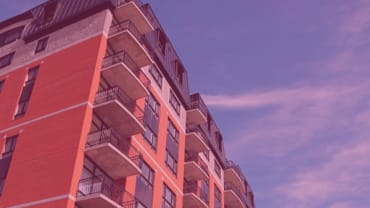The United States is no stranger to litigation , and the response of authorities there to the COVID-19 pandemic has been subject to a high volume of court challenges, with varying degrees of success.
Intriguingly, a significant number of cases in the US have challenged the ending of 'lockdown' measures, while others have opposed the measures themselves; a trend that seems in large part attributable to the political divide over the COVID-19 response, combined with the ongoing presidential election campaign,.
On 13 May Wisconsin became the first state to have its 'lockdown' measures overturned by a court, when its Supreme Court decided that measures imposed by the state's Department of Health Services had been unlawful (Wisconsin Legislature v Palm).
Since then, similar challenges have been raised in Michigan, Georgia, and Illinois, where a restraining order was granted against the state's 'stay at home' order on 27 April 2020, but only insofar as it affected state representative Darren Bailey, who brought the case to court (Bailey v Pritzker).
Other court challenges have frequently featured social issues that divide American politics; for example:
- religious services - restrictions on the number of people attending and the holding of such services;
- the closure of gun stores;
- the postponement of elective surgeries, including abortions; and
- the obligatory wearing of face masks.
There was even a suit – albeit an unsuccessful one - filed against Fox News for misleading COVID-19 coverage under consumer protection laws (Washington League for Increased Transparency and Ethics v. Fox Corporation, dismissed on 27 May 2020).
Other challenges have been brought in relation to restrictions on non-church gatherings (Illinois), and the closure of gyms (Michigan and Ohio), cannabis dispensaries (Massachusetts), and beauty salons (Oregon), as well as other general closures (North Carolina, Washington State and Pennsylvania).
The latest battleground is over measures to reopen the economy. On 24 August a court blocked rules in Florida that sought to force schools to reopen, on the basis that withholding state funding forced school districts to physically reopen schools was unconstitutional, because it denied local school boards their decision making functions (Florida Education Association v DeSantis).
Conversely, in Washington state a challenge was filed in August against the state's plans for remote education, on the basis that it denied children with additional needs their right to a basic education (Wilkes v Washington State Board of Education). In Illinois, a school board challenged state rules requiring it to put health and safety measures in place.
On 5 August the US Supreme Court stopped a district court order requiring COVID-19 precautions to be put in place by the Orange County sheriff, pending an appeal (Barnes v Ahlman).
The ways in which public money has been spent in response to the crisis has also been the subject of contention, with cases raised in relation to Alaska's federal relief fund, Washington's approach to distributing financial support to poor communities, New York's federal emergency sick pay for workers affected by a downturn in business, and emergency procurement decisions in Texas .
Not to be left out, challenges have been brought against the cancellation of a Democratic presidential primary in New York (an order was granted by the US District Court on 5 May) and against the holding of a Trump rally in Oklahoma (denied by state court on 16 June).
The next great battleground is likely to be over how states attempt to run a presidential election ballot while suppressing the spread of the virus. Some have predicted that, as with Bush v Gore in 2000, the US Supreme Court may ultimately end up deciding the winner of the 2020 presidential election.
The challenges elsewhere seem almost tame by comparison.
Contributor
Senior Associate












